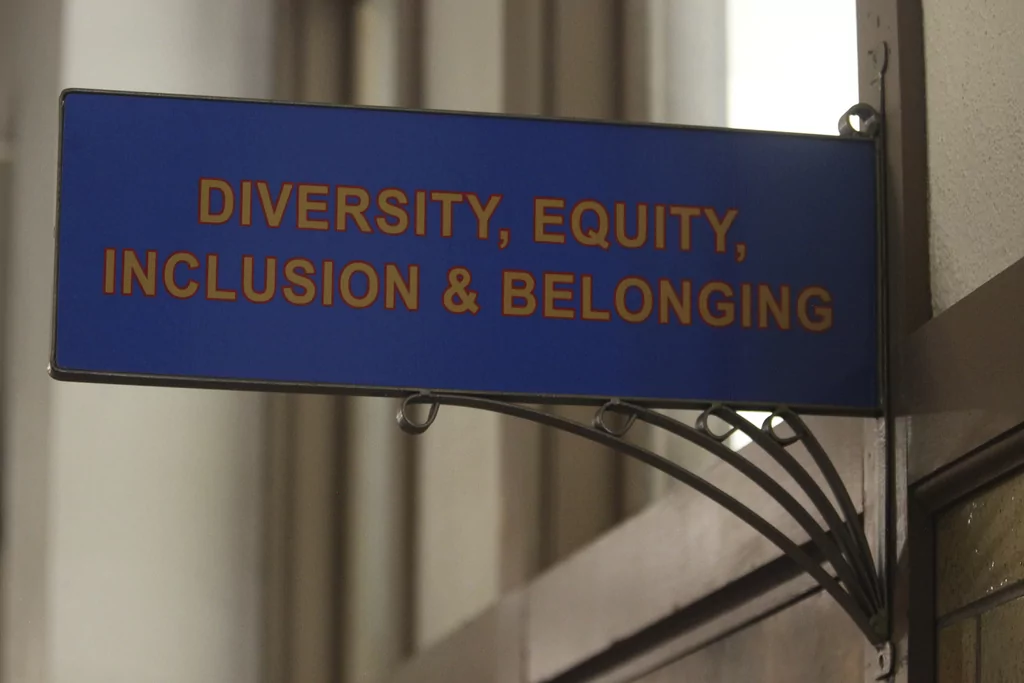

President Donald Trump isn’t just shutting down diversity, equity, and inclusion offices across the federal government — he’s directing employees to turn in colleagues who may be practicing DEI under the radar.
A memo going out to federal agencies warns that some government employees may try to disguise DEI programs using “coded or imprecise language” or by rebranding such efforts using terms like “community outreach” or “belonging.”
Federal employees have 10 days to report changes in contract or personnel position description made since Election Day and have been warned that they could see “adverse consequences” if they fail to do so. That has riled employee unions and some workers, who told the New York Times the tactic feels like something out of the Soviet Union or Nazi Germany.
But previous DEI bans have been met with resistance, often of the underground variety.
For example, after Texas banned DEI programs at the state’s public universities on Jan. 1, 2024, hidden camera footage discovered employees admitting to finding “creative” ways to maintain DEI initiatives while still technically complying with the ban.
A Texas A&M at Galveston employee identified as Rachel Ball said in one recording that “we’re not allowed to say ‘DEI’ anymore” but that her office had “just rebranded, so we’re still doing the same work. We just can’t call it that.”
The University of Texas at San Antonio initially announced it would simply rename its DEI Office of Inclusive Excellence to the Office of Campus and Community Belonging, though it later reversed course.
Those issues may be what the Trump administration had in mind in ordering federal workers to identify DEI rebranding efforts.
At least one example of DEI rebranding has emerged at the federal level. The Daily Mail reported that the Bureau of Alcohol, Tobacco, Firearms, and Explosives attempted to rename its chief diversity officer as a “senior executive” to circumvent the new federal ban.
Each federal agency has been tasked with compiling lists of all DEI offices and workers and executing a “reduction-in-force” against them. DEI officers across the federal government have been placed on paid leave ahead of planned removals, and DEI-focused web pages at various agencies have been taken down.
The move, which Trump campaigned on during the 2024 election, has drawn pushback from some labor unions and Democrats.
American Federation of Government Employees National President Everett Kelley decried Trump’s DEI crackdown, saying, “A diverse federal workforce that looks like the nation it serves, with the lowest gender and racial pay gaps in the country. We should all be proud of that.”
“Ultimately, these attacks on DEIA are just a smoke screen for firing civil servants, undermining the apolitical civil service, and turning the federal government into an army of yes-men loyal only to the president, not the Constitution,” Kelley said.
House Minority Leader Hakeem Jeffries (D-NY) said, “Diversity, equity, and inclusion are American values,” adding, “It’s about economic opportunity. It’s about merit for everyone, based on what you know, not who you know.”
But Trump’s executive orders shutting down DEI offices say they are an enemy of merit, indicating the term may mean different things to different audiences.
“The injection of ‘diversity, equity, and inclusion’ into our institutions has corrupted them by replacing hard work, merit, and equality with a divisive and dangerous preferential hierarchy,” reads a Day One executive order revoking dozens of former President Joe Biden’s executive actions.
CLICK HERE TO READ MORE FROM THE WASHINGTON EXAMINER
While a template email sent from the White House Office of Personnel Management reads that “failure to report this information within 10 days may result in adverse consequences,” some agencies have taken it a step further. The Department of Homeland Security says failure to report “will result” in consequences.
The 10-day period to report underground DEI efforts ends next week.




